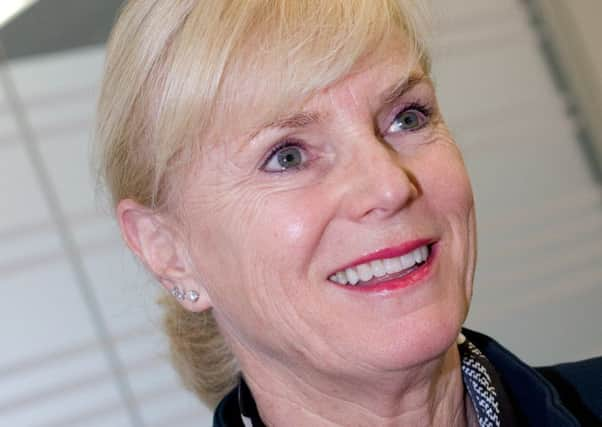Bill Jamieson: Stop revolving door at Alliance Trust


A door there certainly was, but of the wrong sort. What Alliance came to need, though it may have spoilt the sleek black lines of its modernist new office, was a revolving door. For since it opened there has been a constant stream of arrival and departures. Among the first to leave was Harden himself. And last week came another one – that of Alliance chairwoman, the Swedish investment banker and corporate governance panjandrum, Karin Forseke.
Indeed, were this not what was once an uneventful investment trust, we would be forgiven for thinking we had accidentally stumbled midway through the Scandi-noir drama The Bridge, with its gruesome disappearances and rising toll of casualties.
Advertisement
Hide AdAdvertisement
Hide AdOf course, it is not always like this in investment management. People are known to have fulfilling careers at Alliance. And it’s in sharp contrast to that most discreet black box of fund managers, Walter Scott & Partners where people are seen to enter the front door and are never seen again.
Alliance Trust now seems to be stuck in what seems a contradictory condition – a rut of permanent upheaval. Former chief executive Katherine Garrett-Cox has been demoted. Chief financial officer Alan Trotter has gone. Alastair Kerr, the senior independent director and chairman of the remuneration committee who signed off on Garrett-Cox’s £1.4 million pay package, has left.
Google “Alliance Trust” and virtually every item for the past three years has been on boarding parties, activist shareholder revolts, turmoil, re-structurings, management shake-ups – and earnest pledges to improve performance.
Now comes the departure of Karin Forseke, the trust’s £120,000-a-year chairwoman whose four years at the helm could be seen as a rock of stability in this sea of turbulence. Her departure was widely regarded as inevitable after the board conceded defeat earlier this year to activist investor Elliott Advisors and accepted its nominees to the board.
One investment website wag has suggested that Gordon Brown could be brought in as her replacement. Mercifully for those anxious to prevent the discount yawning to 100 per cent, the role of interim chairman will be filled by Gregor Stewart, a non-executive director of the trust since December 2014, a well-respected figure and safe pair of hands in the Scottish financial services sector.
Instability had set in long before the arrival of Elliott. Indeed, it is astonishing that one of Scotland’s largest and most enduring of investment companies has suffered such prolonged upheaval in recent years – all this in the scramble to put investment performance on an even keel and to narrow the discount between the value of the net assets of the trust and its share price. Since Alan Young stepped down as Alliance’s investment manager in 2006, the trust has seen the arrival and departure of no less than 13 investment managers. The co-managers (for now) are Garrett-Cox and Rod Davidson. Investors can be excused Revolving Door Fatigue and a temptation to throw in the towel. The ambition of Elliott to save £6 million in running costs might well have been achieved simply by taking the axe to a top-heavy – and well endowed – management. Fortunately for re-structuring-weary investors there are discernible signs of performance improvement, helped by a recent burst of in-house share buying which has brought the discount down to 10 per cent.
Shares in Alliance Trust have now outperformed in the global growth sector over periods of three months, six months, one year (plus 8.6 per cent against a sector average of 5.7 per cent), three years and five years where Alliance has gained 61.7 per cent against a sector average of 49.2 per cent.
Let’s cheer this performance uplift after so much blood, toil, sweat and tears. But one can’t help wondering whether investors may have preferred a more stress-free and less noise-some investment in City of London Investment Trust or Lowland Investment Trust, both of which have outperformed Alliance over five years.
Advertisement
Hide AdAdvertisement
Hide AdInvestment trusts are a great equity market vehicle in which Scots played a major part in their formation and development. And Alliance has a place in the pantheon of leading Scottish companies. Hopefully the turbulence of constant change and re-structurings is now behind it and it can concentrate on investment performance and on rebuilding its position as a first-choice investment vehicle for young and old alike. In this, management stability is paramount. The spinning revolving doors at Alliance are surely due a rest.